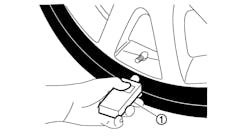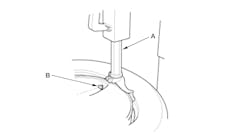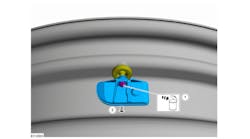The 2012 election for president of the United States is just around the corner, and each of the primary candidates addresses small business.
Decisions by the president can be far-reaching. The checks and balances put in place by our founding fathers sometimes blunt sweeping legislation, but not always.
A perfect example of a law that greatly affects the independent tire dealer is the Affordable Care Act, which was designed to make health care more affordable for families and small businesses, according to the current administration.
Whether you agree or disagree with that assessment, the legislation directly affects your business.
The hard part in determining what the candidates have to say about small business is eliminating the rhetoric and the false statements. Ultimately, you have to work from each candidate’s own words. Once they’ve spoken on the record, their promises or beliefs can be cross-checked for contradictions both in the past and on the campaign trail.
Here’s President Obama’s position on small business, courtesy of the official Obama-Biden re-election website (www.barackobama.com):
“Small businesses are the engine of job creation — responsible for two out of every three new jobs in the United States. That’s why President Obama has passed tax cuts for small businesses 18 times and streamlined the patent process, providing a new fast track option to cut wait times by two-thirds and help small business innovators move ideas from the lab to market.”
Earlier this year, President Barack Obama signed bipartisan jobs legislation that he said will help small businesses and make it easier for startups to raise capital.
“When their ideas take root, we get inventions that can change the way we live,” the president said. “And when their businesses take off, more people become employed.”
It should be noted that from 2008 through 2011, the number of business loans of less than $1 million fell 22%, according to the Small Business Administration.
Romney’s website (www.mittromney.com) doesn’t directly address small business, choosing instead to give a broad view on his business plan.
“His plan seeks to reduce taxes, spending, regulation, and government programs. It seeks to increase trade, energy production, human capital and labor flexibility. It relinquishes power to the states instead of claiming to have the solution to every problem.”
Romney did directly address small business issues in a teleconference hosted by the National Federation of Independent Business (NFIB) in June. “What makes America’s economy go is individuals with dreams who take the risk, borrow money from their family, max out their credit cards, maybe get an outside investor. People starting businesses and taking those risks create the jobs that put America to work.”
As abridged by J.D. Harrison of “The Washington Post,” Romney told NFIB members that should he win in November, “he would begin by issuing an executive order freezing all regulations approved under but not yet implemented by President Obama. His administration would then review each one individually, taking ‘a weedwhacker’ to the ones they deem detrimental to the business climate.
“The governor also said he would do everything in his power to block the president’s health care reform measures, starting with a waiver issued to all states allowing them to sidestep the mandate.”
According to a survey conducted earlier this year by the Pew Research Center, 75% of American adults believe small businesses have a positive effect “on the way things are going” in our country.
Both candidates say they want to invest in small business. Do you believe them or not? It’s up to you to do your homework, decide for yourself, and vote. Don’t take this election for granted.



